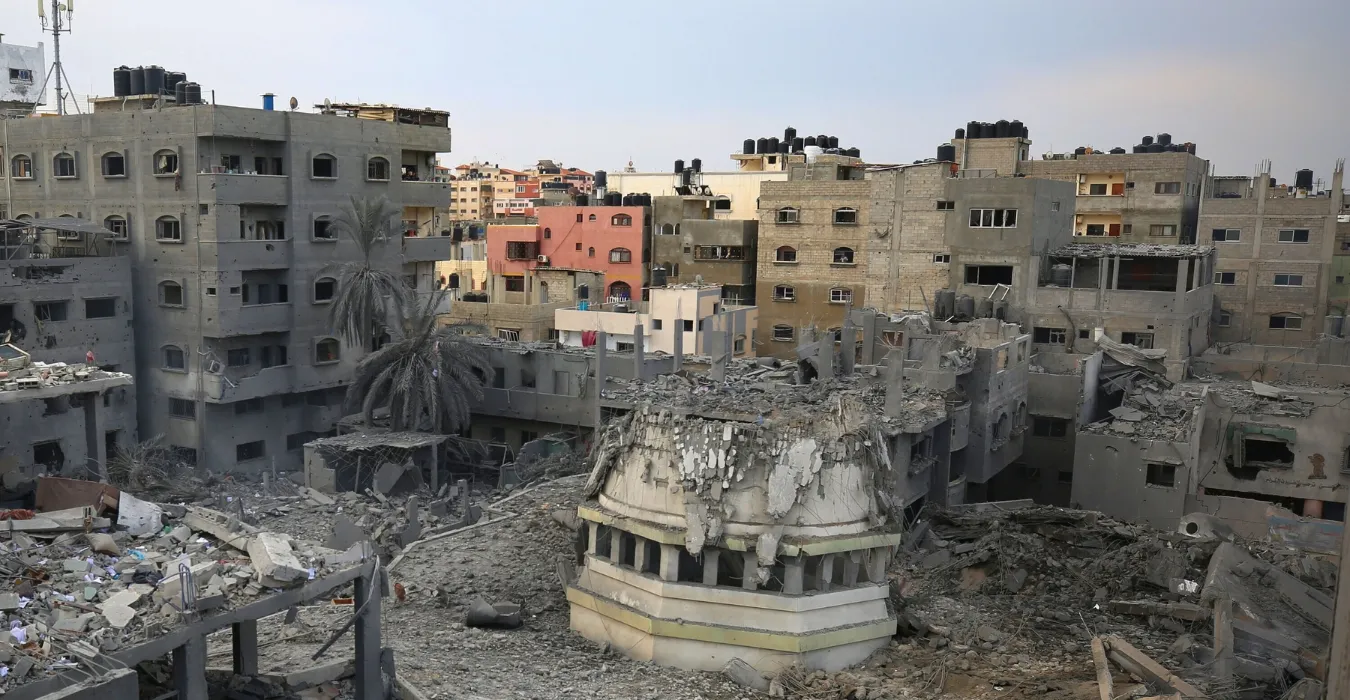DSA Correspondent
Israel’s War Cabinet Approves Controversial Plan to Occupy Gaza City
New Delhi, August 8, 2025 – In a significant escalation of the Israel-Hamas conflict, the Israeli security cabinet has approved Prime Minister Benjamin Netanyahu’s proposal to take full military and administrative control of Gaza City, one of the most densely populated and politically sensitive urban centers in the region.
The decision, made after a high-level war cabinet meeting, underscores the deepening militarization of Israel's Gaza strategy and is expected to have wide-ranging implications both domestically and internationally.
The Plan: Netanyahu’s Five-Point Doctrine
The war cabinet adopted a comprehensive five-point framework proposed by PM Netanyahu as the guiding policy for concluding the conflict:
- Dismantling Hamas: Total elimination of Hamas’ military and political capabilities within the Gaza Strip.
- Return of Hostages: Securing the return of all Israeli hostages—dead or alive—held by Hamas and its affiliates since the October 2023 conflict escalation.
- Complete Demilitarization: Eradicating weapons infrastructure and armed capabilities of all militant groups in Gaza.
- Permanent Israeli Security Control: Establishing long-term Israeli military oversight over Gaza to prevent future insurgencies.
- New Civil Administration: Replacing Hamas and the Palestinian Authority with a new administrative framework not affiliated with either group, possibly under Israeli or international supervision.
Military vs Political Rift: IDF Voices Concern
The plan has sparked a visible divide between Israel’s military and political leadership.
Chief of Staff General Eyal Zamir and other senior IDF officials expressed serious reservations, warning that an occupation of Gaza City could:
- Jeopardize ongoing hostage negotiations
- Overextend Israeli military resources
- Trigger a potential surge in asymmetric warfare and urban combat casualties
Despite these concerns, Netanyahu secured majority support in the war cabinet, pushing ahead with a political vision that critics say prioritizes dominance over diplomacy.
Humanitarian Fallout: A Crisis Deepens
Human rights organizations and international agencies have warned that the new plan could lead to the displacement of nearly 1 million Palestinians, most of whom are already facing food, water, and medical shortages after months of sustained conflict.
The UN Office for the Coordination of Humanitarian Affairs (OCHA) has reiterated its call for an immediate ceasefire, stressing that the humanitarian situation is approaching “catastrophic” levels.
Additionally, civilian infrastructure in Gaza City—already heavily damaged—may collapse under the pressure of renewed large-scale military operations, pushing the population further into survival mode.
Domestic Backlash and Political Fallout
The decision has triggered intense backlash within Israel as well.
Thousands took to the streets in Tel Aviv, Haifa, and Jerusalem, protesting what they call a reckless and unsustainable military agenda.
Opposition leader Yair Lapid sharply criticized the move, calling it:
“A disaster in the making that will sink Israel deeper into international isolation and internal instability.”
Civil society organizations and former security officials have called for parliamentary review and international mediation to de-escalate the situation before irreversible damage occurs.
Global Response: A Growing Alarm
The global reaction to Israel’s plan has been a mix of concern and condemnation:
- The United Nations has called for restraint and immediate humanitarian access.
- The United States—Israel’s key ally—has expressed cautious support for Israeli security objectives but emphasized the need to minimize civilian harm and restore diplomatic channels.
- European Union nations and Arab League members have issued statements warning of further destabilization across the region, particularly in the context of already fragile Israel–Lebanon and Israel–Iran tensions.
Conclusion: A Decisive Moment in the Conflict
With Israel now moving towards full-scale urban occupation, Gaza stands at a historical and humanitarian tipping point. The decision marks the most aggressive shift in Israeli policy since the war began and could determine the trajectory of the Middle East for years to come.
As the world watches closely, the next few weeks will reveal whether this move leads to greater security, wider regional conflict, or an unprecedented humanitarian collapse.

-min.webp)
 (1).webp)
.webp)
.webp)

.webp)
.webp)



 9958382999
9958382999
